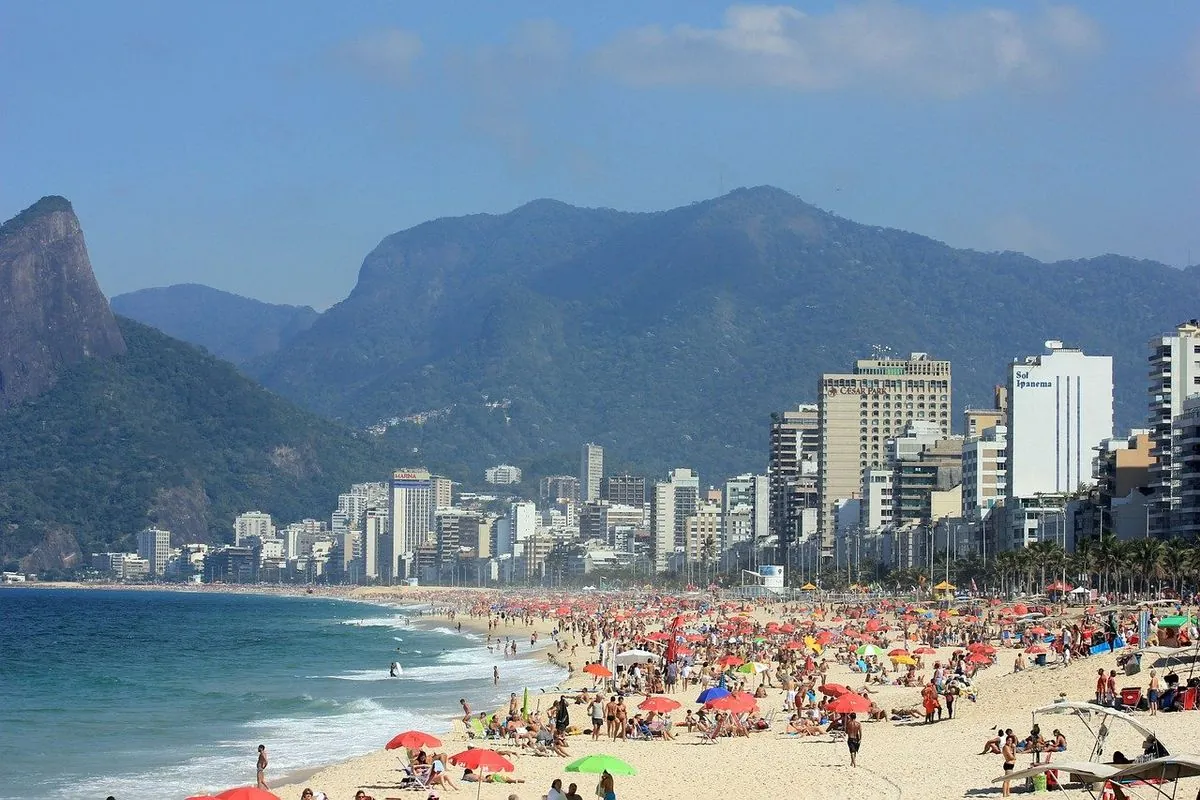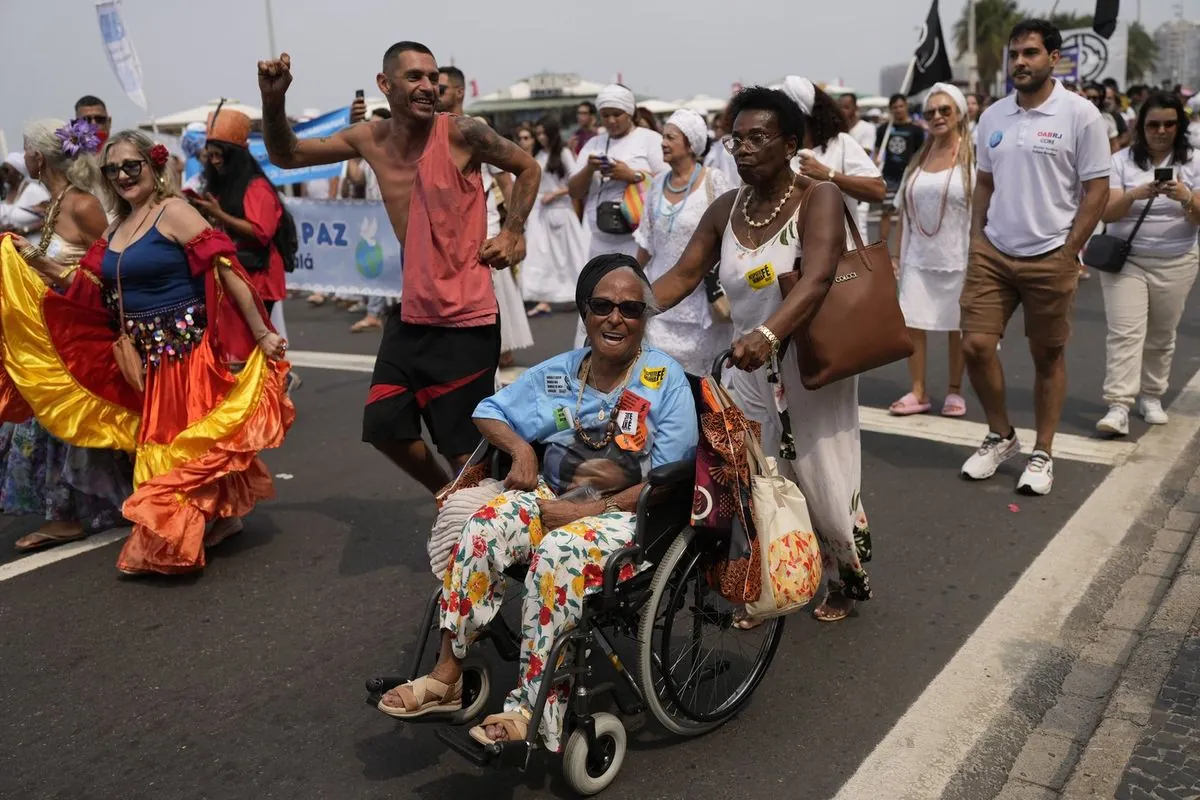Religious Freedom March in Rio Highlights Rising Intolerance in Brazil
Hundreds gather at Copacabana Beach to support religious diversity amid growing intolerance. Government data shows a 140% increase in religious discrimination complaints over five years.

On September 15, 2024, Rio de Janeiro's iconic Copacabana Beach witnessed a significant demonstration for religious freedom. The 4-kilometer-long shoreline, renowned worldwide, became a stage for hundreds of individuals representing various faiths to voice their concerns about the escalating religious intolerance in Brazil.
This event, known as the March for the Defense of Religious Freedom, marked its 17th consecutive year. The march drew participants from over a dozen religious traditions, with a notable presence of Afro-Brazilian faith practitioners. These groups have recently faced increased hostility, particularly from certain Christian factions.
Brazil, the largest country in South America with a population exceeding 200 million, is known for its religious diversity. However, government data reveals a troubling trend: between 2018 and 2023, complaints of religious intolerance surged by 140%. This statistic underscores the growing tensions within the nation's religious landscape.
Macaé Evaristo, Brazil's Minister for Human Rights, participated in the march, emphasizing the government's stance on the issue. The Human Rights Ministry, established in 2003, plays a crucial role in addressing such societal challenges. Evaristo stated:
"The great challenge today in our country is to reduce inequality. So for me it is very important to be present in this march, because the people here are also struggling for many things like decent work and a life free from hunger."
The minister's presence highlights the interconnection between religious freedom and broader social issues in Brazil.

The march particularly highlighted the plight of Afro-Brazilian religions such as Candomblé, Umbanda, and Quimbanda. These faiths, which developed in the 19th century, have deep roots in Brazilian culture but face increasing discrimination. Vania Vieira, a Candomblé practitioner, expressed concern about the devaluation of African-origin traditions:
"Everything that comes from Black people, everything that comes from people of African origin is devalued; if we are not firm in our faith, we will lose strength. This walk is to show that we are standing, that we will survive."
The rise in intolerance coincides with the rapid growth of evangelical Christianity in Brazil, particularly neo-Pentecostal churches that emerged since 1970. While most proselytizing is peaceful, some groups have been associated with discrimination against traditional African-influenced religions.
Brazil's constitution, established in 1988, guarantees religious freedom. Moreover, since 1989, religious intolerance has been classified as a crime, punishable by up to five years in imprisonment and fines. Despite these legal protections, incidents of discrimination and attacks on religious minorities persist.
The situation in Rio de Janeiro state, home to over 17 million people and a quarter of Brazil's Afro-Brazilian religion practitioners, exemplifies the national trend. The state has seen a significant increase in evangelical Christian presence, particularly neo-Pentecostal denominations focused on converting non-believers.
As Brazil continues to grapple with these challenges, events like the March for the Defense of Religious Freedom serve as crucial reminders of the nation's commitment to religious diversity and tolerance. The march not only highlights the ongoing struggles but also demonstrates the resilience and unity of various faith communities in the face of adversity.


































